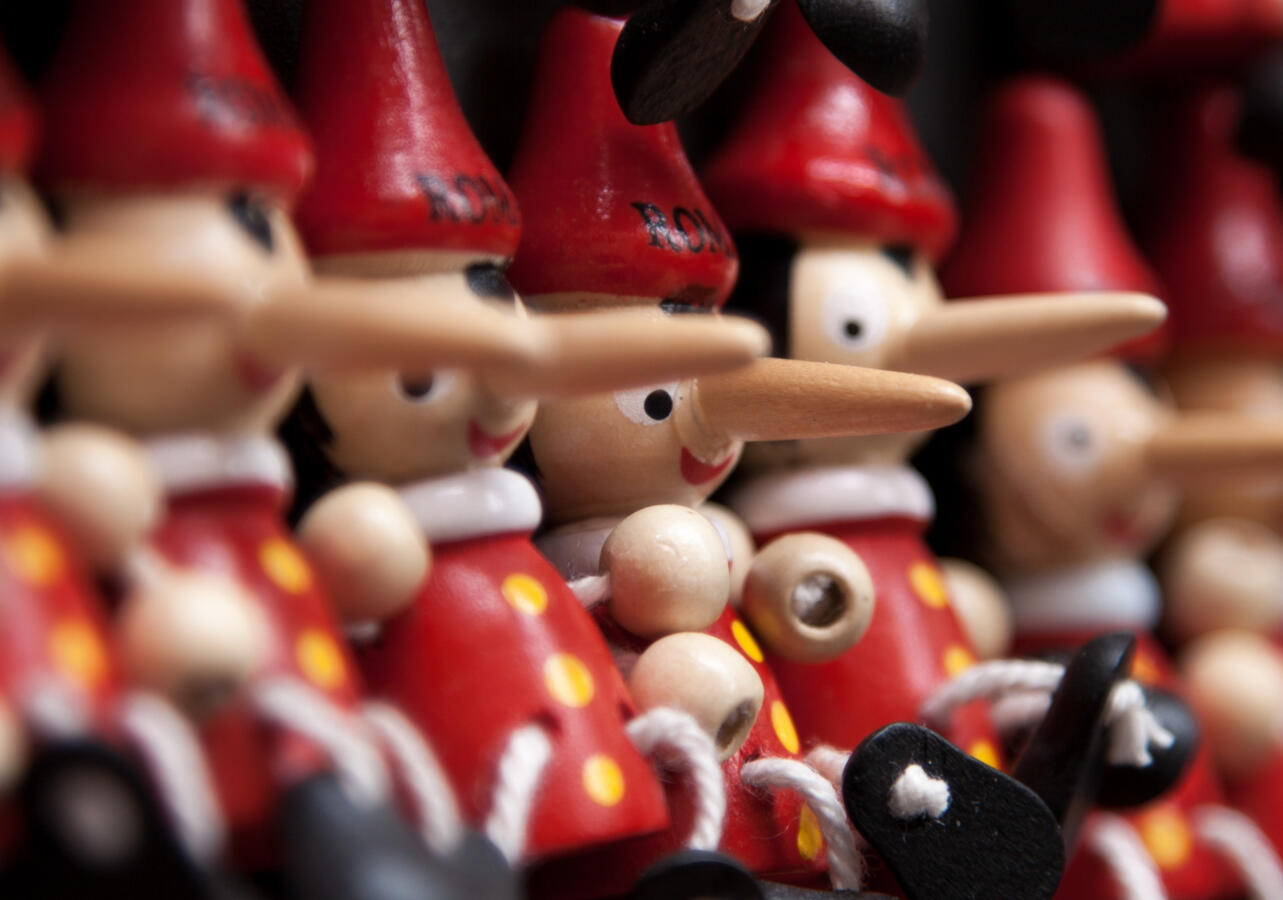Are you allowed to lie? The Bible tells us to “stay far from falsehood” (Exodus 23:7). But the Talmud records an argument between the schools of Hillel and Shammai concerning whether one should praise a bride as beautiful if she is, well, less than beautiful. The school of Shammai says no, and that of Hillel says yes, but the Hillelites try to escape the contradiction by insisting that on her wedding day, every bride is beautiful.
In the Torah, God misquotes Sarah’s words to Abraham, tactfully leaving out Sarah’s claim that her husband is too old to have a child (Genesis 18:12–13). The value of shalom bayit, domestic harmony, overrode the value of honest reporting. Similarly, the rabbis tell approvingly of Aaron’s willingness to dissemble in order to ensure peace between friends who quarrel.
God’s seal, teaches the midrash, is truth. But peace and decency are also high values. Weighing tenderness and honesty in the mix is a not easy. In a time when people exaggerate events to maximize conflict, we might err on the side of minimizing conflict. Or we can combine the advice of Hillel and Shammai, and follow the example of Jean Cocteau, the French artist who, in declining a dinner invitation, sent a telegram reading: “Regret cannot come. Lie to follow.”
Rabbi David Wolpe’s musings are shared in My Jewish Learning’s Shabbat newsletter, Recharge, a weekly collection of readings to refresh your soul. Sign up to receive the newsletter.
With your help, My Jewish Learning can provide endless opportunities for learning, connection and discovery.



